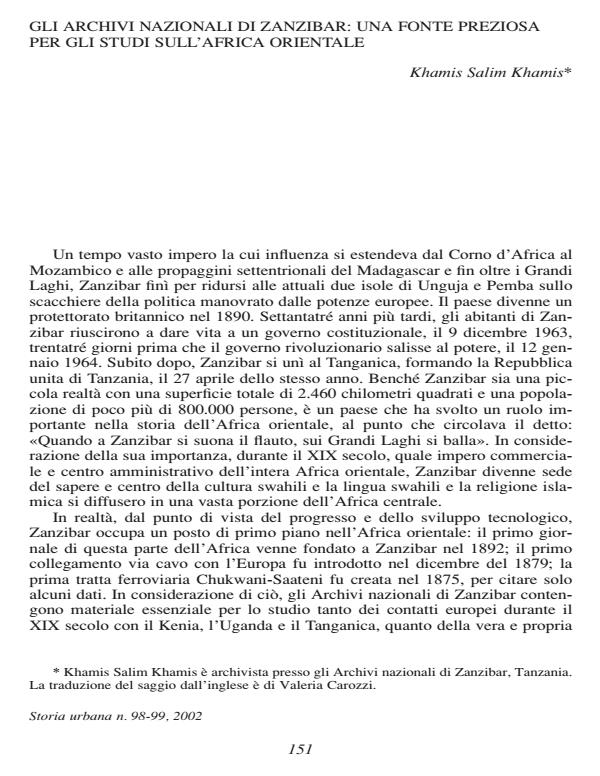Gli archivi nazionali di Zanzibar: una fonte preziosa per gli studi sull'Africa orientale
Journal title STORIA URBANA
Author/s Khamis Salim Khamis
Publishing Year 2003 Issue 2002/98-99
Language Italian Pages 9 P. File size 42 KB
DOI
DOI is like a bar code for intellectual property: to have more infomation
click here
Below, you can see the article first page
If you want to buy this article in PDF format, you can do it, following the instructions to buy download credits

FrancoAngeli is member of Publishers International Linking Association, Inc (PILA), a not-for-profit association which run the CrossRef service enabling links to and from online scholarly content.
This paper aims to highlights few collections under custody of Zanzibar National Archives which provide information related to Zanzibar and East Africa. The Zanzibar Archives are one of the oldest and richest Archives in the East African region. The Archives under custody are unique in terms of languages and subjects covered. There are records in English, German, French, Arabic, Asian languages as well as Swahili language: a combination which cannot be found in any of the Archives in East Africa. Collections preserved in the Archives reflect this logical historical sequence. In chronological sequence the oldest material is to be seen under Arabic Manuscripts and Books collection. The United States of America opened their consulate in 1837, followed by Great Britain in 1841, and France 1844. Later, other foreign powers came; meanwhile, Britain, through her long-term influence and position in India through the East India Company, emerged as the dominating force in Zanzibar. British supremacy over Zanzibar was confirmed in 1890 when the island was declared British protectorate. The collections are as well including documents on explorers and missionaries, copies of the «Zanzibar Gazette», maps, plans, and valuable photographic material.
Khamis Salim Khamis, Gli archivi nazionali di Zanzibar: una fonte preziosa per gli studi sull'Africa orientale in "STORIA URBANA " 98-99/2002, pp , DOI: